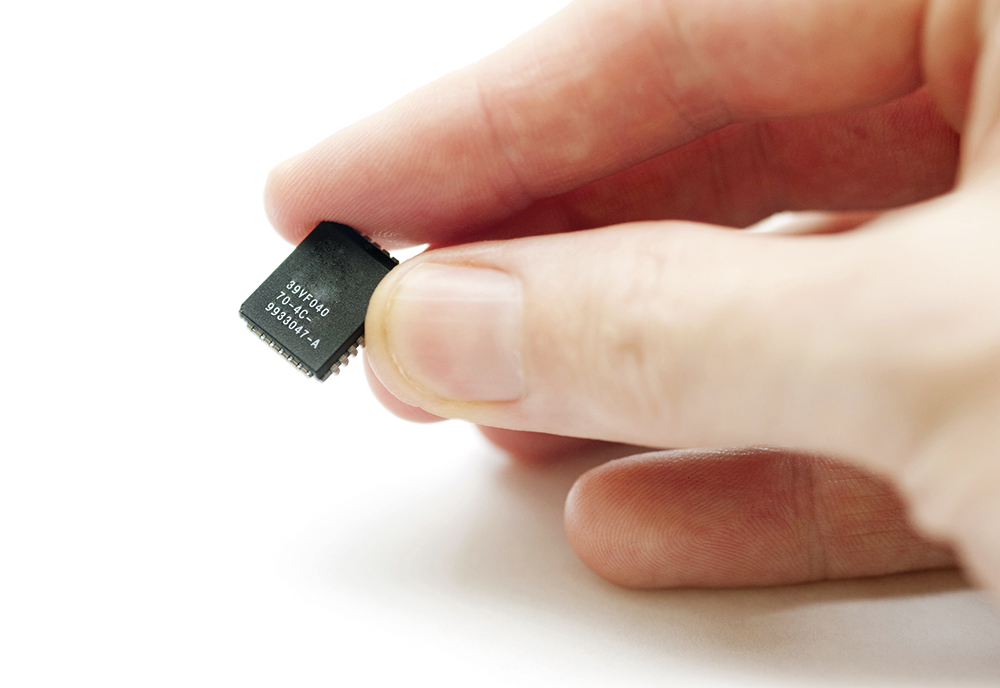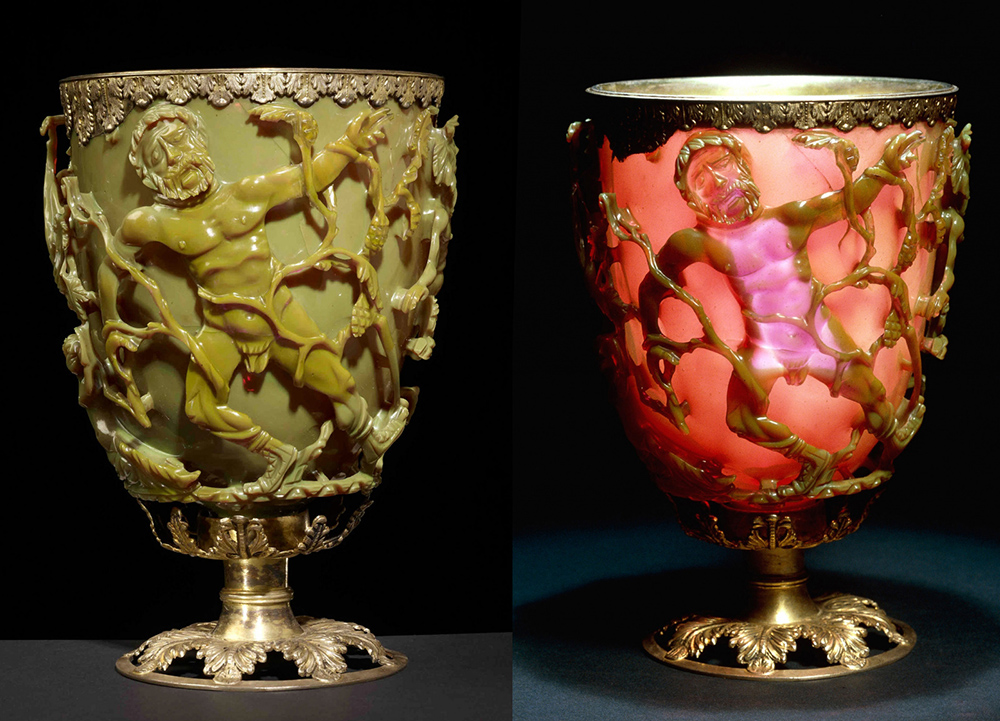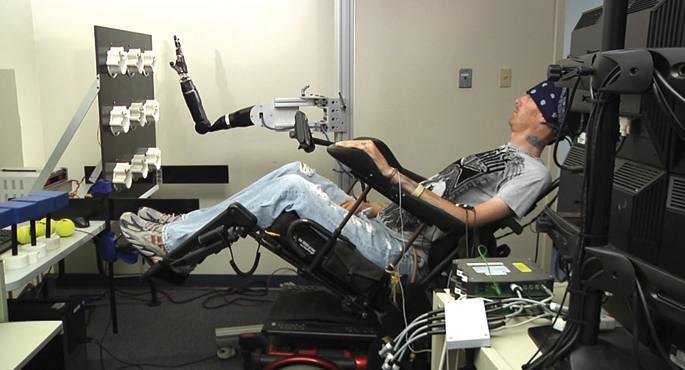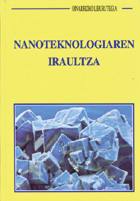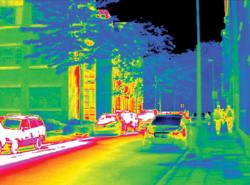"The development of science is unstoppable"
- Interview = (Say+ Listen)²
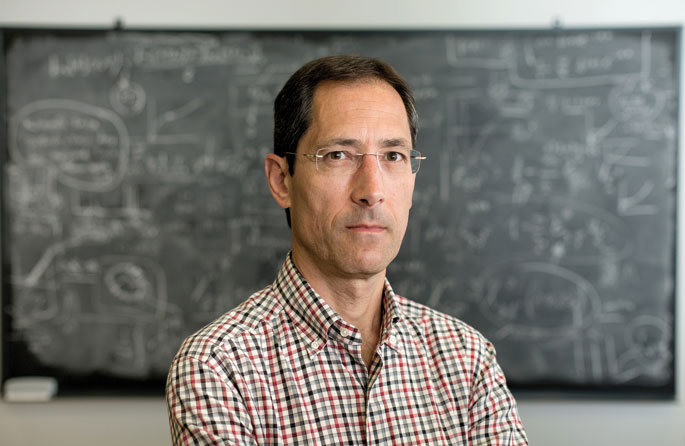
The scientist's formula?
The scientist does tireless work, untie and release knots until he sees light at the end of the tunnel. Its objective is to understand what it is researching, inventing, creating new knowledge and once the end of the tunnel is reached, it will not yield to the dismantling of the new nodes that are chained to it. He will not be frightened of unforeseen events. On the contrary, if you find what you did not expect, much better! To do this, your engine is curiosity. Curiosity and an obligatory obsessive point. When asked Niels Borh, father of quantum mechanics, for his great contribution, “All day I think nothing more than that. How can I guess? ", he replied. In fact, we want our work to influence the development of research and to be useful in tackling other challenges. We are competitive because we want that recognition. We like to reach the top of the goal, see our articles published in the most prestigious journals. It is the condition for influencing others.
On the road to destiny, are you aware of the influence that what you have in your hands can have in our lives?
Curiosity guides us, not so much that the application of what we have in our hands can suppose in society. Sometimes we suspect it, sometimes we don't. The developers of quantum mechanics at the beginning of the 20th century didn't know that they were laying the foundation of today's electronics, and look now at the number of little bits we have around us. Without quantum mechanics, there wouldn't be a cell phone, but inventors of quantum mechanics didn't have a cell phone in their head. Working in the long term means more than answering questions than answers. So we need new questions before we find answers. That's why applications are the way to bring basic research to society. We're also looking for past research applications. Applications and dissemination. So, turning around your question, is he aware that what we have in our hands can change our lives?
…
It is true that society passes from science. Truth and normality. However, society values science positively, it knows that it's important, that science provides technology. For example, everyone is clear that research is needed in the fight against diseases. In areas such as ours, it is more difficult to make needs visible, language is complicated, and what is not understood is ignored. In this sense, dissemination is essential. Science has a huge influence on our daily lives, we live surrounded by technology, and behind many decisions we must make as a society are science and technology. How are we going to make the right decisions without a scientific culture? The need to awaken vocations in Compulsory Secondary Education students to attract students is repeated over and over again, but more important than that is the introduction of a minority scientific culture. That's where we fail. We don't have a scientific culture.
So are you doomed to prodigious findings to appear in the media?
What appears in the media? Sport, politics... What do people like? Understand. It doesn't take much to understand sport, we all think we understand politics, but what about math? Those who understand it like it and those who don't understand it hate it. That is why it is difficult for us to put our nose into the media. The media want an impact, and what is not easily understood impacts it. If we want people to listen to us, it is up to us to be understandable, and for that we need the collaboration between the scientist and the journalist. Until we have defined the responsibility of translating the work of the researcher in simple words, we will focus on the fight against the wind.
Science provides technology and solutions pose new problems. Is it all wind in the wave?
From a practical point of view, the life of a hundred years ago was not human. Happiness, well-being or the possibility of living were in the hands of a few. In most cases, life was hard: there was only water in the rivers, diseases became pests, life expectancy was shorter... Thanks to science and technology, the thorns have been polished, the edges rounded and we have an easier life than a hundred years ago. But that doesn't mean we're safe from all the problems. New inputs and tools bring significant benefits, but also a high risk of misappropriation. For example, in these times, technology can wobble the balance with nature. That is why I insist on the need for scientific culture. This will protect us from the risks. Knowing science and technology will help us make better use of the advantages of science, without choking on risks.
Are the institutions and authorities aware of this?
The most advanced countries in the world have always had excellent scientists. In the United Kingdom, Germany, the United States, leading researchers are highly valued. It is no coincidence that the countries that have opted for science are the most advanced and, although they are the most advanced, they are still committed to science. Science belongs to everyone, but everyone decides to go on the first, middle or last train wagon. Forty years ago, there was no university in science. There was an engineering school, economic studies, but in science we were in the desert. Thanks to the cooperation of the Basque Government for science over the last twenty years. Today we have good scientists, research centers that are gaining relevance and body. What we lack is tradition. For example, many universities and research centres in the UK supplement part of the budget with the patronage given by the general public. In our country, that is unthinkable. However, if institutions continue to bet on science, tradition will become entrenched, and people may change mindsets and acquire the need for science. It will take years, but it would be a good sign to get there.
Is there going to be years for private funding to come too?
We are not up to other countries. I can easily say that companies have to put money in, but employers see the matter differently. Frankly, US companies contribute their money to research, especially what the Basques get from the Basque Government. It is very difficult for a company here to invest its money in research. In the United States, they are convinced that they are going to recover that investment, which is going to be good for their company. In that, too, we need a change of mindset. In fact, research centres like ours are not only the actors that respond in the short term to the needs of companies, but can be in the medium and long term key players in economic development. That's what's happening in the United States. To do so, companies have to bet on us. And we have to bet on companies.
When we talk about research centers, what view does nanoGUNE have?
We want to be a leading, well-known and leading research center in nanoscience around the world. Let us be on the map for what we do, let the results of our research influence the work of others. In general, although for a basic research centre these objectives are sufficient, nanoGUNE should influence economic development, be recognised and recognised by local companies. Let your companies see us as a cost-effective centre for Basque society, which finds that thanks to our capabilities we are able to mobilise the economy. In order to do this, we must be clear that we cannot be competitive in all areas and that the proper delimitation of our work and our possibilities will give us the stumbling blocks to be. Nanoscience being a wide and dispersed space that requires interdisciplinary collaboration, this is the great challenge of the small.
Graphene is one of your slots.
Graphene is the only layer of carbon atoms. It has a thickness of one atom, it's the thinnest object we can imagine, a million times thinner than the sheet of paper. By accumulating graphene sheets, the graphite known in the pencils is obtained. Until recently, however, we did not believe that a single sheet could be permanently isolated, until in 2004 the scientists at the University of Manchester demonstrated that it was possible. So we all started researching graphene, because in one material it has incredible properties. It has great flexibility, there's no stronger material than it is, it's the best thermal conductor, graphene's electronic mobility is a hundred times greater than the silicon we use today, transparent ... Break all brands. The industrialized method for graphene production was invented in 2009, and soon after we decided to create Graphenea, a company dedicated to the production and sale of graphene. We hadn't thought about that, but when an investor approached us with that intent, we discovered that we had knowledge, the best researchers in this field and a front-line infrastructure. Graphenea, for its part, is the best graphene producer in Europe and is at the head of the world. Why were we able to take the step? Because we were well-positioned in the graphene studio, because we were competitive, and above all, because we saw the gap.
What is graphene for?
It is a very useful, robust and low-weight material. Imagine, with four or five grams of graphene, we would cover a whole football field. In electronics, in the very long term, all chips can be graphene. In the short term, we will find it on touch screens. There are very few conductive and transparent materials, and what we use today is scarce. We will see that sooner rather than later. At the moment, graphene is only on the market in tennis rackets and some conductive inks. Centres like ours and industry use it for research. Nokia, IBM, Philips, etc. They're spinning around graphene and they're Graphenea customers. So I say, sooner or later, that we'll see graphene anywhere in the market. But I couldn't know.
Should we put limits on science, on progress? Does science need ethics?
The development of science is unstoppable. Despite the limitations, the scientist continues to try to untie all the knots that cross him. It would therefore be pointless to put limits on science. Another thing is to set limits to what science brings. That's where ethics and debate come in. Nuclear power can be an example. In basic research there is no ideology, ideology does not condition the advancement of knowledge, but the use of knowledge is mandatory management and regulation. That is why I say that, to the extent that it works for society, science is unstoppable, and that borders and ethics come later.
What is coming tomorrow, the day after tomorrow, then?
Almost everyone who in the past looked to the future and opened their mouths has shook their feet. Notice, the famous physicist Michelson said that everything was made when the theory of relativity and quantum mechanics that are indispensable to us today were not invented. What are the challenges of the future? What is going to change our lives in half a century? I think medicine. We still know very little about medicine. Nanotechnology is going to affect every field, you're going to invent devices that we don't imagine, and we're going to make up part of a big network where everything will be connected. Computers will be like paper -- usable, disposable and recyclable -- everything will be portable, devices will be integrated into our clothes, or who knows, maybe inside of us. This will enable personalized medicine, which at all times knows exactly what each one needs. We're going to approach medicine without side effects, controlled drug transportation and focus on sustainable development. If we are able to do more with less, without side damage or waste, we will earn a lot.
1960ko otsailaren 14an Bilbon sortua. EHUn Fisikan doktoratua, EHUko fisikako materia kondentsatuaren katedraduna eta nanoGUNE-ko zuzendari nagusia da. Post-doktoretza Oak Ridgeko laborategi nazionalean egin zuenetik, egonaldi mordoxka egin ditu Amerikako Estatu Batuetako unibertsitate zein Londresko unibertsitateko Imperial Collegean, eta aldizkari askotan argitaratu dira bere artikuluak. 2005etik Cambridgeko unibertsitateko Churchill kolegioko “Al-Member” da, eta 2009an Manuel Laborde Werlinden sariko epaimahaiak aipamen berezia egin zion grafenoarekin izandako iniziatiba enpresariala dela-eta.
Zuzendariaren bulego ongi isolatuan euliak eta hitzak soilik entzuten dira. NanoGUNE-ko kafetegian, hizkuntza ezberdin asko. Hiru laurdenak eskapatzen zaizkidan arren, gero eta atseginagoak zaizkit frantsesa eta gaztelera beharrezkoak ez diren eremuak. Horregatik bakarrik, zientzialaria izan nahi nuke handitan.
The Clinatec laboratory in Grenoble, supported by the French Atomic Energy Commissioner, has been authorised to place microchips in the human brain since 2013. The aim is to take steps in the fight against Parkinson's disease, tetraplegia and depression.
The laboratory has six... [+]
A group of researchers from the United States, Spain, Belgium and Japan, who were doing a nanotube trial, found that if you add boron to carbon, nanotubes run away as if they were sponges, and in addition to floating well in the water, they absorb the oil and oil that may be in... [+]
Azken hamarkada bitan, materia atomoz atomo eta molekulaz molekula manipulatzeko gaitasuna garatu dugu gizakiok. Hartara, gauzatu egin da 1950eko hamarkadan Richard Feynman fisikari ospetsuak irudikatutakoa, berak izen hori eman ez bazion ere: nanoteknologia. Aukera berrien... [+]
Unai Mtz Lizardui / Alain Urizar ::Nanoteknologiaren iraultza
Gaiak
orrialdeak ::155
prezioa ::18€
Batzuen artean ::Jakin 171
Jakin
orrialdeak ::146
prezioa ::10.50€
Teknologi elektrokimikoen zentroa, 1997an sortu zen sektore elektrokimikoaren sektore industrialei zein administrazioari eta orokorrean gizarteari zerbitzua emateko. Energiaren, gainazalen tratamenduen eta material berrien alorretan dihardu. Miramongo Parke Teknologikoan... [+]











